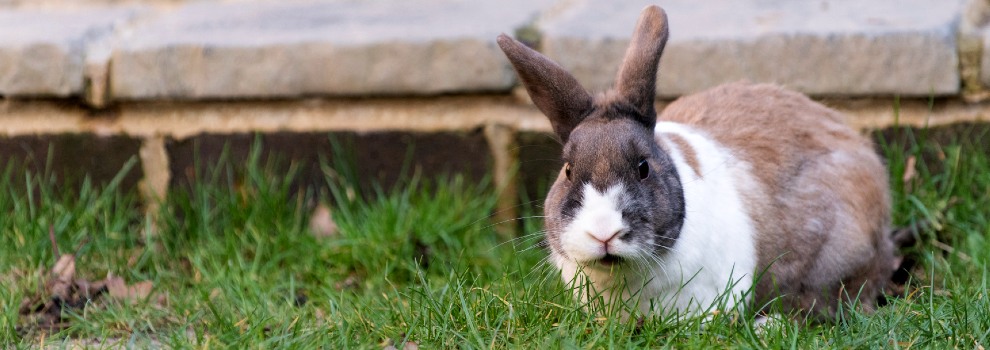- Find a Pet
- Advice and Welfare
- Ways to Give
- Get Involved
- What We Do
- Search
- My RSPCA
- Report a concern
- Gift in Wills
-
Colour modeVivid Calm
- Home
- Advice and welfare
- Pets
- Rabbits
- Health and welfare
- Poisoning
Poisoning in rabbits
If you suspect that your rabbit has been poisoned, it's best to stay calm and contact your vet immediately - never watch and wait. Here's more on what you should do and how to keep your pet safe.

If you think your rabbit has been poisoned
- Stay calm and remove your rabbit(s) from the source of poison.
- Contact your vet immediately - say when, where and how it happened. If possible, you can carefully take the packaging, plant or substance to the vet, but only if you can do this safely.
- Follow your vet's advice - if you're advised to take your rabbit to the vet, do so quickly and calmly.
Here are a few things to remember:
- Never try to treat or medicate rabbits yourself. Some medicines for humans and other animals may be poisonous to rabbits.
- If their skin or fur is contaminated, wash it with mild shampoo and water, rinse well and dry.
- Keep your rabbit(s) away from any other animals to avoid cross-contamination.
Never 'watch and wait' if you suspect poisoning - act fast and contact a vet immediately.
Common rabbit poisons
Some of the most common, potentially severe rabbit poisons are:
- Rodent poisons (called 'rodenticides')
- Ivy
- Rhubarb
- Foxglove
- Glyphosphate herbicide products
Other cases of poisoning in rabbits have included common household and garden plants such as species of lily, clematis, rhododendron and lily of the valley.
Read more about these common rabbit poisons and their symptoms and treatment.
Keeping your rabbits safe from poison
Follow our tips to keep your rabbits safe from poisons.
In the home:
- Keep houseplants where your rabbits can't reach them. Pick up dropped leaves and petals.
- Keep pesticides (such as rat baits) away from areas your rabbits can access.
- If treating your rabbits with insecticides at home, separate them from other pets to avoid cross-contamination.
- Watch your rabbits closely when they're running free indoors.
Outside:
- Ensure their housing and exercise areas are free from, and not overhung by, poisonous plants.
- Ensure your rabbits' water supply can't become contaminated and change it regularly.
Finally, for peace of mind, make sure your vets' bills are covered should the worst happen by insuring your rabbits.
Acknowledgement for this information is made to The Veterinary Poisons Information Service (VPIS), which has helpful information for pet owners.



